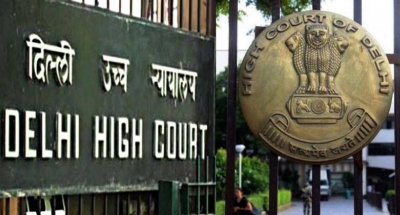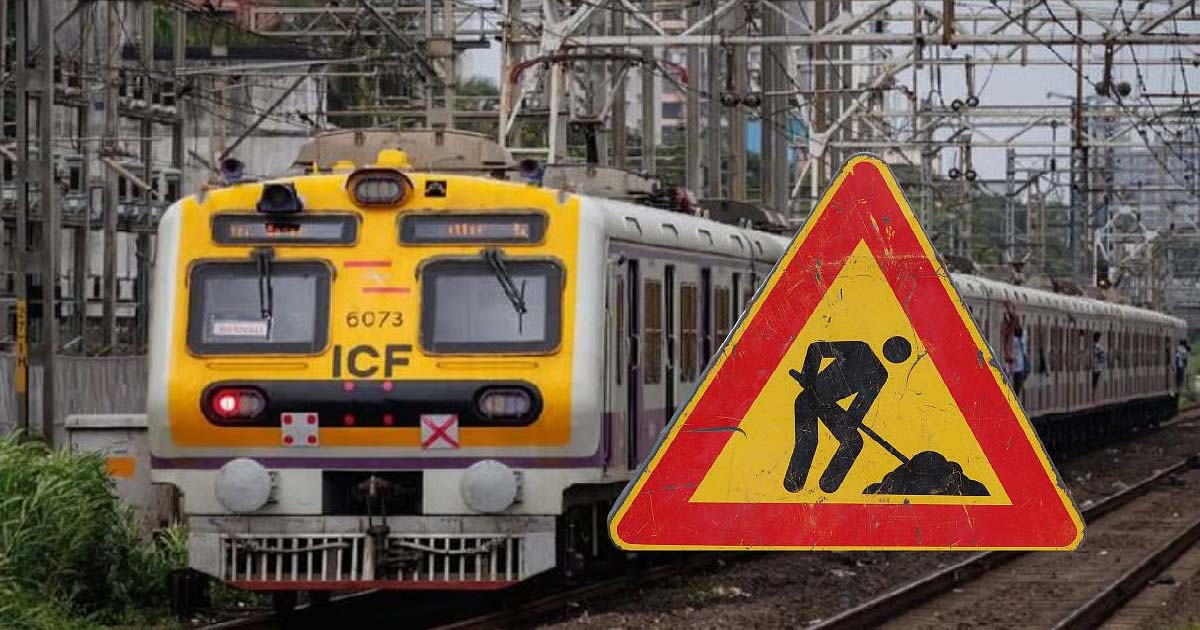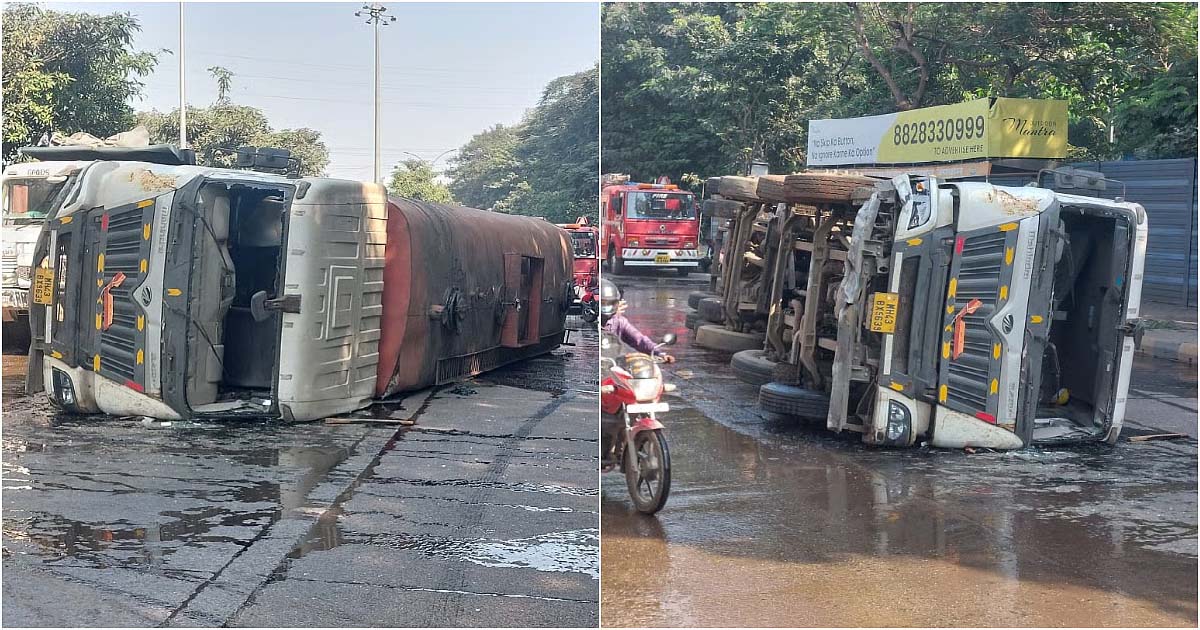National News
Sanction to attach properties of DMRC would bring city to halt, Centre tells Delhi HC

The Delhi High Court on Thursday was informed by the Centre that it cannot give sanction for attachment of properties of Delhi Metro Rail Corporation (DMRC) for repaying unpaid arbitral award to Delhi Airport Metro Express Private Ltd (DAMEPL), owned by Reliance Infrastructure, as it would bring the city to a halt.
The High Court had on Monday directed the Centre to decide whether it proposes to give sanction for the attachment of movable and immovable assets of the DMRC.
The Centre has made its submission to the court through an affidavit filed by Joint Secretary of the Ministry of Housing and Urban Affairs.
It said that giving sanction will cause significant inconvenience to the public and impact law and order in the national capital.
“It is submitted that sanction for attachment of the properties of the DMRC cannot be accorded by the answering respondent since that would result in closure of the DMRC and bring the city of Delhi to a halt. Such a situation will cause significant inconvenience to the public and impact law and order in the city. The answering respondent, being the custodian of the public good, cannot permit such circumstances to ensue,” the affidavit stated.
A bench of Justice Yashwant Varma, while directijg the competent authority of DMRC to attend the proceedings on Friday so that a “holistic view” can be taken with respect to the funds available with the corporation, adjourned the matter for March 3.
The court also asked the counsel for Centre to place on record the formal order passed by it deciding not to accord the sanction for attachment of properties.
During the last hearing, the judge had said: “…Before the court proceeds to rule on the issue of whether the circumstances warrant the corporate veil of the DMRC be lifted, it would appear expedient to call upon the Union government to take a decision on whether it proposes to accord sanction for the attachment of the movable and immovable assets of the corporation for the purpose of the satisfaction of the amount payable under the award.”
The HC on February 17 issued a notice to the Centre and the Delhi government in the case.
Justice Varma had initiated proceedings against the Ministry of Housing and Urban Affairs and the Delhi government on the DAMEPL’s petition seeking enforcement of the arbitration award dated May 11, 2017.
An amount of Rs 1,678.42 crore of the arbitral award has already been paid and Rs 6,330.96 crore is yet to be paid by DMRC.
Attorney General R. Venkataramani had on January 31 told the high court that if the Centre agrees to an interest-free subordinate debt on behalf of the DMRC to pay Reliance Infra, the Delhi government will follow suit.
Earlier in January this year, the DMRC had informed the court that it has requested the Centre and Delhi government for interest-free subordinate debt of Rs 3,565.64 crore from each for repaying the DAMEPL.
National News
Mega Block On Sunday, 23-11-2025: Mumbai Local Train Services To Be Affected On CR’s Main Line, No Block On Harbour & Trans-Harbour Line; Check Details

Mumbai, Nov 22: Central Railway, Mumbai Division will operate Mega Block on its main line suburban sections to carry out various engineering and maintenance works on Sunday, 23th November.
UP and DOWN FAST Lines between Thane and Kalyan stations from 10.40 am to 3.40 pm
Down Fast/Semi-Fast local services departing CSMT Mumbai from 09.34 am to 15
3.03 pm will be diverted on Down Slow line between Thane and Kalyan stations halting at Kalva, Mumbra and Diva stations in addition to their respective scheduled halts and will arrive destination 10 minutes later than their scheduled arrival.
Up Fast/Semi-fast services departing Kalyan from 10.28 am to 3.40 pm will be diverted on Up Slow line between Kalyan and Thane stations halting at Diva, Mumbra and Kalva stations in addition to their respective scheduled halts and further re-diverted on Up Fast line at Mulund station and will arrive destination 10 minutes later than their scheduled arrival.
Down Mail/Express trains departing CSMT/Dadar will be diverted on 5th line between Thane and Kalyan stations.
Up Mail/Express trains arriving CSMT/Dadar will be diverted on 6th line between Kalyan and Thane/ Vikhroli stations.
There will be no Mega block on Harbour line & Trans-Harbour line-Only special traffic block between Belapur & Panvel.
According to Railway, these maintenance mega blocks are essential for infrastructure upkeep and safety. Passengers are requested to bear with the Railway Administration for the inconvenience caused.
National News
Navi Mumbai: Overturned Tar Tanker Causes Traffic Snarl On Nerul–Uran Road; Cleared After 12 Hours

Navi Mumbai, Nov 22: After close to 12 hours of operation, the tanker filled with tar that overturned on Friday was finally cleared from the Nerul–Uran road, bringing relief to thousands of motorists who were stuck in day-long congestion.
The tanker, carrying highly flammable liquid bitumen from Chembur to Uran, had overturned near Ekta Vihar Society around 6.30 am, choking traffic on the busy stretch for several hours. Although police managed to allow movement through a single lane, vehicles headed towards Uran crawled through the day, leaving commuters frustrated.
According to officials, the driver lost control of the tanker, causing it to topple in the middle of the road. Senior Police Inspector Pramod Bhosale of the Belapur Traffic Division and his team rushed to the spot along with the fire brigade soon after the accident.
With the bitumen inside the tanker at a temperature of nearly 180°C, there was a significant risk of ignition, prompting the fire brigade to launch cooling operations and prevent any spillage on the road. The tar was carefully transferred to another tanker over several hours.
By around 5 pm, a crane was used to lift and remove the overturned vehicle, allowing authorities to restore normal traffic flow, Bhosale said.
The Nerul–Uran route, which sees heavy movement of JNPT-bound trucks as well as routine traffic to the Navi Mumbai Municipal Corporation headquarters, remained clogged for most of the day. Many motorists were stuck in long queues, bearing the brunt of the prolonged congestion caused by the accident.
Business
New labour codes to boost formalisation, gender parity of India’s workforce: Industry leaders

New Delhi, Nov 22: India’s top industry bodies and staffing leaders on Saturday labelled the implementation of the Four Labour Codes a landmark step toward formalising the workforce, expanding social security, and aligning India’s labour framework with global standards.
The India Electronics & Semiconductor Association (IESA) said the reforms would significantly benefit the high-technology sectors by enhancing workforce stability, improving safety standards, and enabling labour flexibility with social protection.
“Mandatory appointment letters, universal minimum wages, and pan-India social security coverage (including ESIC expansion) ensure greater formalisation. This strengthens worker confidence — critical for skill-intensive manufacturing such as fabs, ATMP, component manufacturing and design centres,” said Ashok Chandak, President, IESA and SEMI India.
Provisions for fixed-term employment, faster dispute resolution, single licensing, and simplified compliance directly support the scaling of high-tech manufacturing clusters, the statement said.
Meanwhile, parity of benefits for Fixed-Term Employees (FTE) and expanded social security protections ensure a balanced, worker-centric ecosystem, he added.
Sachin Alug, CEO of NLB Services, a technology and digital talent provider, said the reforms were long overdue for India’s gig economy and will offer protection to a fast-growing but previously unorganised workforce.
The new laws are also expected to promote gender parity in the workforce by opening doors to wider opportunities across diverse sectors. Additionally, other groups such as”
He also pointed out that new laws will promote gender parity and contract workers, youth workers, and fixed-term employees will benefit from clearer working-hour norms, expanded social security, minimum wage protections, and health benefits.
“By simplifying compliance and unifying the regulatory framework, the codes can significantly expand formal employment, bringing millions of workers, especially in industries that rely on contract, temporary, and project-based roles, into the fold of structured, protected work,” said Balasubramanian A, Senior Vice President, TeamLease Services.
“National floor minimum wage creates a consistent benchmark across states and is an important step in India’s evolution from a minimum-wage economy to a living-wage economy,” he noted.
Suchita Dutta, Executive Director of Indian Staffing Federation (ISF), said the codes simplify compliance for employers, reduce regulatory burdens, and foster a more flexible hiring environment — crucial for the staffing industry, which has long advocated for such changes to unlock formal job creation.
The government, on November 21, implemented the Four Labour Codes — the Code on Wages (2019), Industrial Relations Code (2020), Code on Social Security (2020), and Occupational Safety, Health and Working Conditions (OSHWC) Code (2020) — repealing and rationalising 29 existing central labour laws.
-

 Crime3 years ago
Crime3 years agoClass 10 student jumps to death in Jaipur
-

 Maharashtra1 year ago
Maharashtra1 year agoMumbai Local Train Update: Central Railway’s New Timetable Comes Into Effect; Check Full List Of Revised Timings & Stations
-

 Maharashtra1 year ago
Maharashtra1 year agoMumbai To Go Toll-Free Tonight! Maharashtra Govt Announces Complete Toll Waiver For Light Motor Vehicles At All 5 Entry Points Of City
-

 Maharashtra1 year ago
Maharashtra1 year agoFalse photo of Imtiaz Jaleel’s rally, exposing the fooling conspiracy
-

 National News1 year ago
National News1 year agoMinistry of Railways rolls out Special Drive 4.0 with focus on digitisation, cleanliness, inclusiveness and grievance redressal
-

 Maharashtra1 year ago
Maharashtra1 year agoMaharashtra Elections 2024: Mumbai Metro & BEST Services Extended Till Midnight On Voting Day
-

 National News1 year ago
National News1 year agoJ&K: 4 Jawans Killed, 28 Injured After Bus Carrying BSF Personnel For Poll Duty Falls Into Gorge In Budgam; Terrifying Visuals Surface
-

 Crime1 year ago
Crime1 year agoBaba Siddique Murder: Mumbai Police Unable To Get Lawrence Bishnoi Custody Due To Home Ministry Order, Says Report












